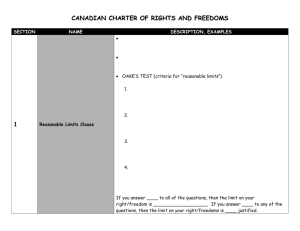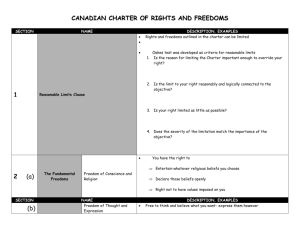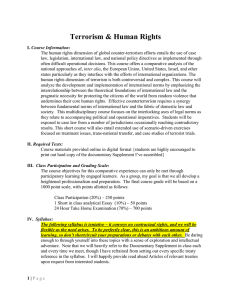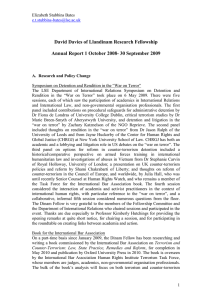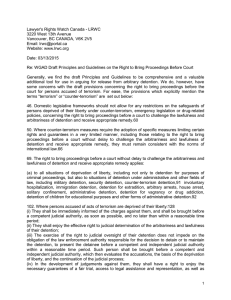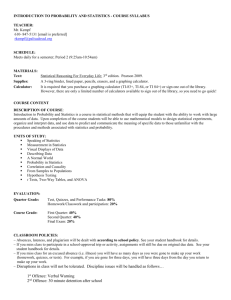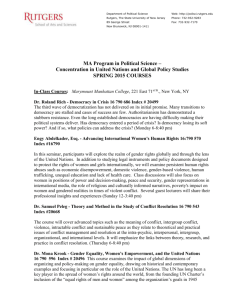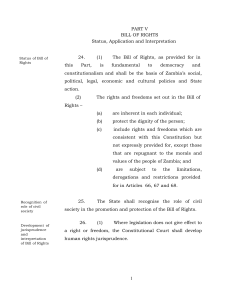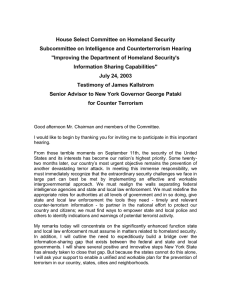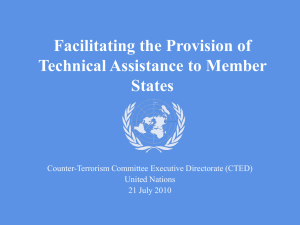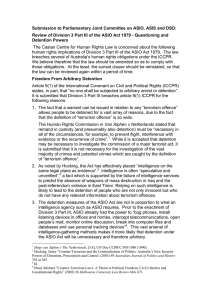1 - Australian Human Rights Commission
advertisement
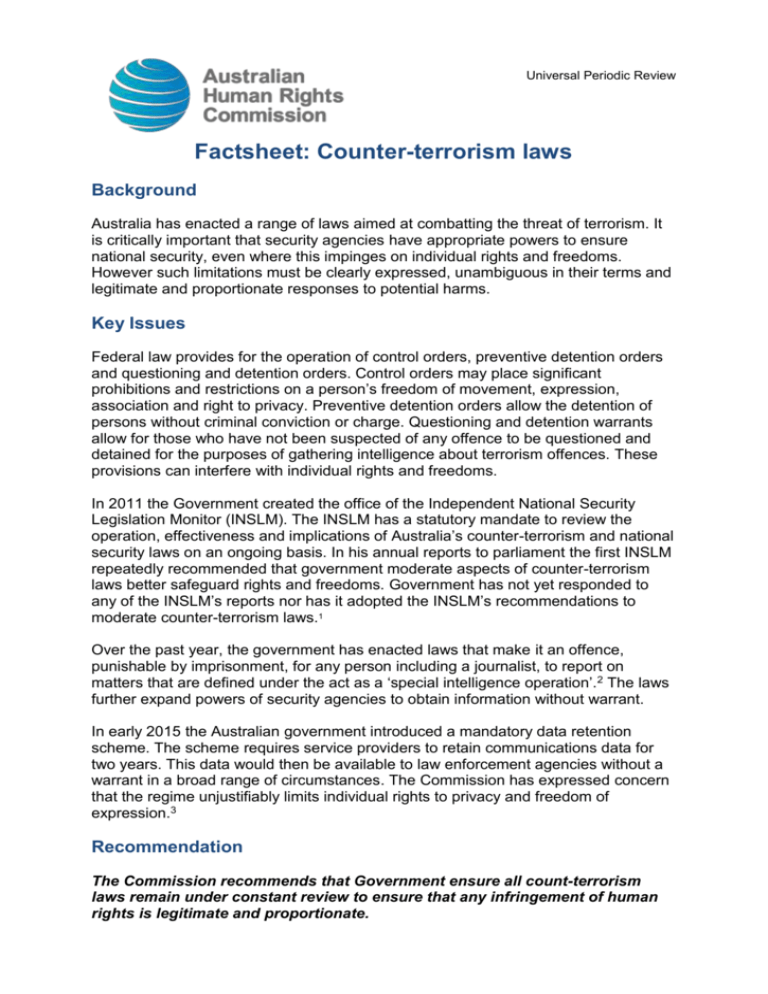
Universal Periodic Review Factsheet: Counter-terrorism laws Background Australia has enacted a range of laws aimed at combatting the threat of terrorism. It is critically important that security agencies have appropriate powers to ensure national security, even where this impinges on individual rights and freedoms. However such limitations must be clearly expressed, unambiguous in their terms and legitimate and proportionate responses to potential harms. Key Issues Federal law provides for the operation of control orders, preventive detention orders and questioning and detention orders. Control orders may place significant prohibitions and restrictions on a person’s freedom of movement, expression, association and right to privacy. Preventive detention orders allow the detention of persons without criminal conviction or charge. Questioning and detention warrants allow for those who have not been suspected of any offence to be questioned and detained for the purposes of gathering intelligence about terrorism offences. These provisions can interfere with individual rights and freedoms. In 2011 the Government created the office of the Independent National Security Legislation Monitor (INSLM). The INSLM has a statutory mandate to review the operation, effectiveness and implications of Australia’s counter-terrorism and national security laws on an ongoing basis. In his annual reports to parliament the first INSLM repeatedly recommended that government moderate aspects of counter-terrorism laws better safeguard rights and freedoms. Government has not yet responded to any of the INSLM’s reports nor has it adopted the INSLM’s recommendations to moderate counter-terrorism laws.1 Over the past year, the government has enacted laws that make it an offence, punishable by imprisonment, for any person including a journalist, to report on matters that are defined under the act as a ‘special intelligence operation’.2 The laws further expand powers of security agencies to obtain information without warrant. In early 2015 the Australian government introduced a mandatory data retention scheme. The scheme requires service providers to retain communications data for two years. This data would then be available to law enforcement agencies without a warrant in a broad range of circumstances. The Commission has expressed concern that the regime unjustifiably limits individual rights to privacy and freedom of expression.3 Recommendation The Commission recommends that Government ensure all count-terrorism laws remain under constant review to ensure that any infringement of human rights is legitimate and proportionate. 1 For example, in his 2012 report, the INSLM recommended that control order provisions be repealed. Rather than addressing this recommendation, in 2014, the government expanded the control order regime and weakened associated safeguards. 2 See further Australian Human Rights Commission Submission to the Parliamentary Joint Committee on Intelligence And Security Inquiry into the National Security Legislation Amendment Bill (No. 1) 2014 (21 August 2014), paras 54-63. 3 See further Australian Human Rights Commission, Submission to the Parliamentary Joint Committee On Intelligence And Security Inquiry into the Telecommunications (Interception and Access) Amendment (Data Retention) Bill 2014 (14 January 2015). 2
